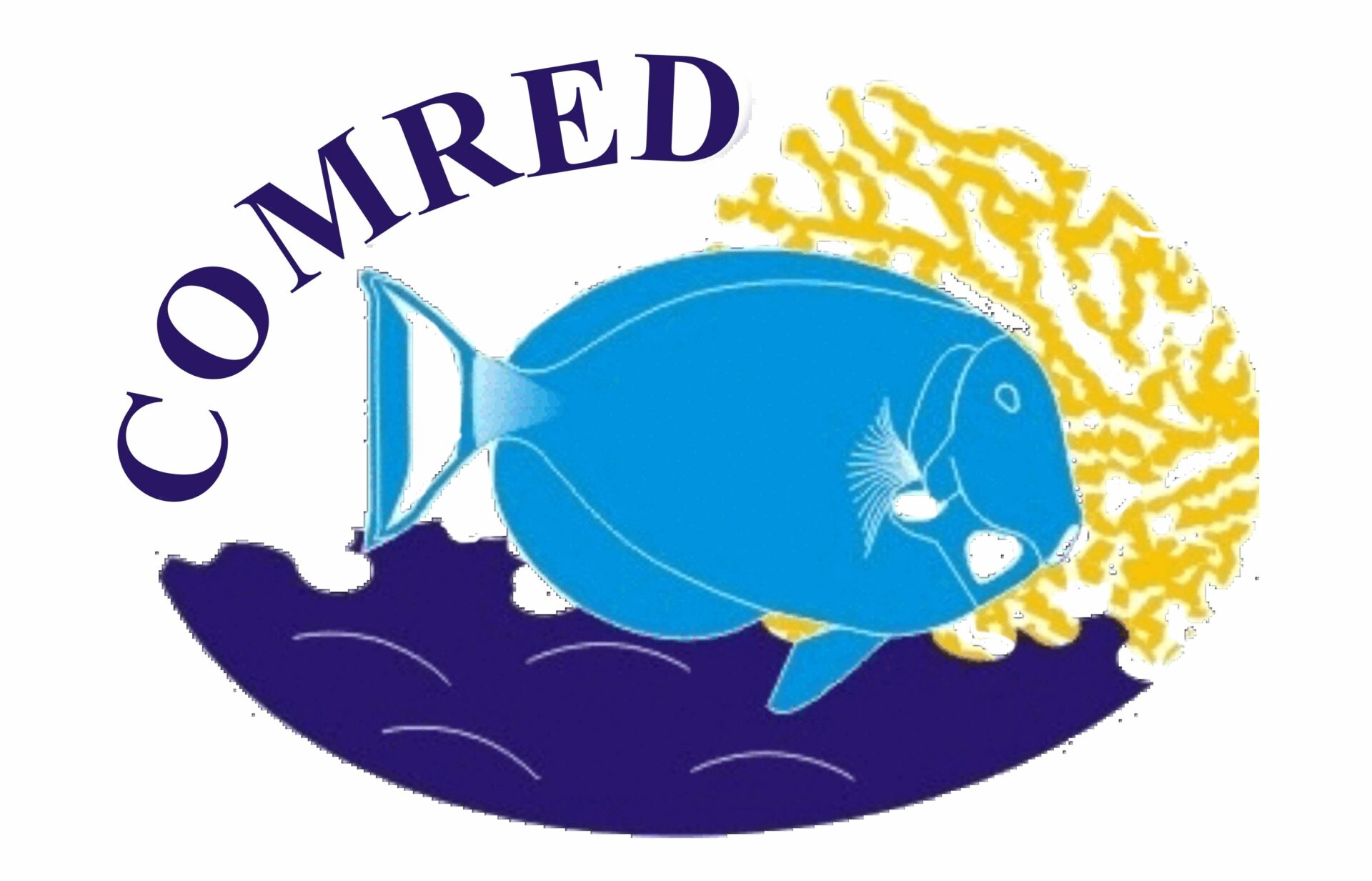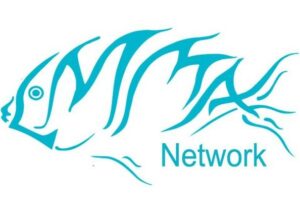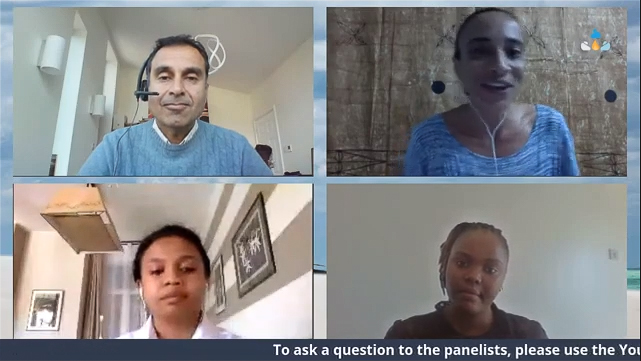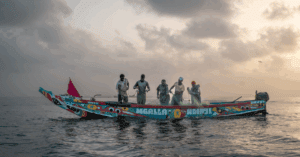Last week’s Toko Telo interactive online discussion facilitated by Blue Ventures welcomed experts from across the coastal tropics to discuss how experiences from COVID-19 can help networks and organisations support fishing communities. Prisca Ratsimbazafy of the MIHARI Network in Madagascar, Teri Tuxson of the LMMA Network in Fiji, and Jane Muteti and Yvonne Muyia of COMRED in Kenya, shared their observations throughout the pandemic of the vulnerabilities and resilience of the small-scale fishing communities that their organisations support and discussed ways in which they are working to increase support to continue to build the resilience of these coastal people.
COMRED: Community vulnerability/resilience during COVID-19 in Shimoni-Vanga Seascape, Kenya

Yvonne Muyia, Project Assistant at COMRED, kicked off the event with a presentation on a case study of the Shimoni Vanga Seascape in Kenya. This coastal area is home to approximately 2,632 fishers, with fishing being the primary livelihood of the majority of people living there.
As Yvonne explained, these small-scale fishers are particularly vulnerable to unpredictable and seasonal weather, declining marine resources, their reliance on single livelihoods and a general lack of capital. These vulnerabilities have been exacerbated by the pandemic, yet communities are showing resilience by trading goods for services, establishing mangrove nurseries and continuing small-scale fishing and farming. Yvonne explained how COMRED are supporting alternative livelihoods, building the technical skills of communities, involving various stakeholders (including local authorities) in resilience plans and improving the communities’ access to capital and markets.
“Let’s not forget, this is a crisis within a crisis. Poverty has been there – it’s not the first time that we are learning about the vulnerability of communities…we are learning that we need to come up with ways of providing alternative livelihoods to communities.”
The LMMA Network: COVID-19 impacts on coastal & island communities in the South Pacific
 Speaking on behalf of the LMMA Network based in Fiji, Teri Tuxson, Assistant Coordinator of the LMMA Network, gave a detailed overview of a series of in-depth surveys that the organisation has carried out in Papua New Guinea, Federated States of Micronesia (FSM), Solomon Islands, Tuvalu, Vanuatu, Fiji and Tonga, in order to assess the impacts of COVID-19 on coastal and island communities.
Speaking on behalf of the LMMA Network based in Fiji, Teri Tuxson, Assistant Coordinator of the LMMA Network, gave a detailed overview of a series of in-depth surveys that the organisation has carried out in Papua New Guinea, Federated States of Micronesia (FSM), Solomon Islands, Tuvalu, Vanuatu, Fiji and Tonga, in order to assess the impacts of COVID-19 on coastal and island communities.
Aside from Fiji, Papua New Guinea and the Solomon islands, all of these island nations have been free from COVID-19, but communities have still felt the impacts of government restrictions and closed borders, including curfews and social gathering restrictions. Threats from natural disasters have compounded these restrictions, for example, a drought in Papua New Guinea and Vanuatu, and the destructive Cyclone Harold which caused widespread destruction in Fiji, Tonga, Vanuatu and the Solomon Islands in April 2020.
Yet, Teri presents how communities have shown resilience through traditional cultural practices, communal living, home and community gardens, and a recognition of local ownership of traditional fishing grounds. In their surveys, the LMMA Network also explored how organisations in these regions can support coastal communities, which as Teri explains, would be to increase support for fisheries management, diversify livelihoods, enable access to markets and continue to ensure fishers’ rights.
“Unlike the short term responses to natural disasters, which include relaxing fishing regulations to temporarily relieve food shortages caused by a loss of gardens, such reductions in management do not make sense in this long term and unpredictable crisis. In the long term, it is important to develop ways to address vulnerability factors.”
The MIHARI Network: MIHARI COVID Survey
 Prisca Ratsimbazafy, Data Officer at the MIHARI Network in Madagascar, concluded the morning’s talks with a similar presentation of a survey that was conducted by the team to assess the level of knowledge that fishing communities in Madagascar had of COVID-19 and to understand the impacts to guide future support. The participants included community members, NGO partners, actors in small-scale fisheries and local authorities.
Prisca Ratsimbazafy, Data Officer at the MIHARI Network in Madagascar, concluded the morning’s talks with a similar presentation of a survey that was conducted by the team to assess the level of knowledge that fishing communities in Madagascar had of COVID-19 and to understand the impacts to guide future support. The participants included community members, NGO partners, actors in small-scale fisheries and local authorities.
Through the survey, the communities’ vulnerabilities emerged; for example, 80% knew that the virus is prevented through handwashing, but 63% of them do not have access to clean water and soap. 95% reported a decrease in their daily income as a result of reduced seafood exports, curfews and travel bans, meanwhile 87% said they also experienced an increase in their expenses, for example to buy face masks and extra water to wash their hands.
Prisca explained that the results of the survey were presented to the Ministry of Fisheries in order to establish a joint COVID Commission to address the multisectoral issues outlined in the survey results and build the resilience of fishing communities during and after the pandemic.
“[The joint COVID Commission’s] mission is to create a national and multisectoral support movement to enable fishing communities to be more resilient to COVID…so this Commission will be used first to serve as a platform for a dialogue to facilitate relations between stakeholders, to use the survey results to highlight all the challenges faced by fishers’ communities and to identify solutions.”
Following their presentations, the panellists continued to share their expertise in a live Q&A, which was then followed by breakout sessions, offering the chance for participants to learn more about the ways in which these organisations are working to support fishing communities who have been some of the most vulnerable to the impacts of the COVID-19 crisis.
You can watch the first 45 minutes of the webinar here:
Learn about how the communities Blue Ventures’ partner with are showing resilience in the face of COVID-19
Find out more about Toko Telo and find the session outputs including presentation slides, breakout room outputs and additional resources
Thank you to our expert panellists, Prisca Ratsimbazafy, Teri Tuxson, Jane Muteti and Yvonne Muyia, and to all who attended in this interactive online discussion.


















